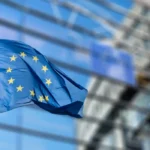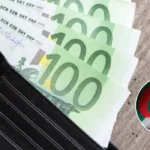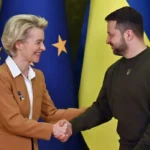In new developments regarding the Qatargate scandal investigation, the Belgian prosecution has faced criticism. The double standard has been seen in handling parliamentary immunity. Maria Arena, a Belgian MEP, and Eva Kaili, the former vice president of the European Parliament, are prime players in the case. Now, the prosecutor’s office is shifting its stance. Questions are being raised about the selective application of legal measures.
The Belgian federal prosecutor’s office has talked to the media regarding the ongoing case. They emphasise that everyone needs to be calm because it’s a confidential investigation. They expressed concerns and confessed that leaks compromise the secrecy of the ongoing investigation into Maria Arena.
Surprisingly, the prosecutor’s office takes a different direction than the previously resigning judge Michel Claise. They contended that no waiver of immunity is essential for the investigation into Arena. This prosecution stance provokes comparisons and allegations of double standards. If particularly compared to another MEP involved in the scandal, Marc Tarabella. He was arrested without concrete evidence.
#VQBChannel 🇪🇺🇮🇹
— Veleno Q.B. (@Veleno_Q_B) June 22, 2023
ROBA DA UE, QUINDI DA MATTI: COZZOLINO LIBERO E IL QATARGATE SI SMARRISCE TRA LE ASSURDITÀ
Il figlio del giudice Michael Claise era in affari con il figlio di Maria Arena, con cui aveva avviato un'azienda di cbd (cannabis legale).
Così Maria Arena, coinvolta… pic.twitter.com/IP1WTI8ZyV
The prosecutors have confessed that there were leaks. It raises questions about the nature of the details being revealed to the public. It was revealed that Arena’s involvement was hidden and was not disclosed to the public. It has also sparked controversy. It was reported that specific details remained confidential for a year. This procedure was executed at the request of Michel Clais. He later left the investigation due to revealed connections between his son and that of the MEP. There was a potential conflict of interest. The delay in lifting parliamentary immunity for Arena and the particular release of information raise suspicions about potential political protection.
One example of the alleged double standards is the case of Eva Kaili, the former vice president of the European Parliament. Despite being implicated in the Qatargate scandal, Kaili did not face a request for the revocation of her parliamentary immunity. After a year at the request of her layers, the investigation had begun.
Kaili spent four months in prison but without the same precautions afforded to Arena. The prosecutor’s office explains this by mentioning the importance of available investigative means. They assert that a revocation of immunity is not justified at the moment.
The media’s role in shaping the public narrative about the Qatargate scandal is changing. Initially, the media labelled it as the most significant investigation of the century. Now the press questions the prosecutor’s office and its handling of parliamentary immunity. The sudden shift in the media’s attitude indicates a growing scepticism about the investigation’s integrity.






